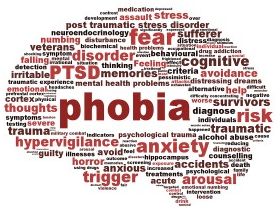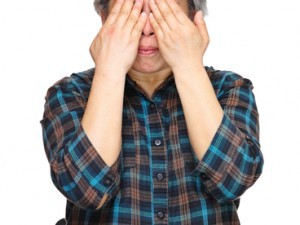 I wrote this blog on social anxiety so I can write my heart without feeling ashamed and so I can share what it is like to live with mental ill health at times. This is something that has been a part of my life since I was 15 years old and I will be 28 this year. It doesn’t feel like 13 years have passed since I first got sick, but its true that time definitely passes quickly.
I wrote this blog on social anxiety so I can write my heart without feeling ashamed and so I can share what it is like to live with mental ill health at times. This is something that has been a part of my life since I was 15 years old and I will be 28 this year. It doesn’t feel like 13 years have passed since I first got sick, but its true that time definitely passes quickly.
Confidence dips and anxiety arrives
I decided to start writing this after I had to leave my job, which is a difficult event for anyone. For me though, it has proved to cause a dip in my confidence levels, which provoked my anxiety disorder once more. I suffer from morning anxiety and panic attacks related to having to go out the house to work at times, I had been working as a teaching assistant for children with autism which due to the full on nature of the work, was hard to deal with. My anxiety has proved exceptionally challenging but I am moving in the right direction and have sought various therapeutic options as you will see. I also have changed career and am hoping to write full time.
Just a little note, although I have never been formally diagnosed with social anxiety disorder, it has been recognised by many Drs and therapists I have seen, so for all terms and purposes, it is present in me and I have sought treatment for it
So what is social anxiety disorder?
Many of you would be slightly surprised to hear I have this as I can be bubbly and friendly, have some loving friends, am at times able to work (albeit part time) or study or go on holiday and go to parties or on dates, which most people take for granted. However, when I am feeling at my worst, when I am tearful and the adrenaline is pumping through my veins, wanting to hide from the world becomes the only way out.
I digress- social anxiety disorder is the general fear of having to interact with people, for fear of negative judgement or outcome. It can make a trip to the shops feel like the most insurmountable mountain, or going on a date feel like the most scary, terrible thing in your life, for fear of negative outcome- eg what if he thinks this/ that about me? what if I feel on show and have to get dressed up when I really want to hide? . As mentioned, when I am feeling well, the anxiety can be kept more at bay.
Social Anxiety is characterised by limiting, negative beliefs about the world or one self and is of course, an irrational disorder. Our bodies are programmed to ‘fight or flight’ and the adrenaline is there for really fearful situations eg when we were cave men and we had to flee from a predator. Our brains and our bodies have not caught up to modern times and still thinks we live in caves (except now the ‘predator’ is a fearful situation in our heads). The adrenaline and cortisol (a hormone) can cause a build up of stress in the body and our emotional reactions eg hyperventilation, painful chest, sweating, hot flushes, shaky etc.
Coping with social anxiety
However, what I have learnt about SA is that if you wait 40 or so minutes for this to pass and you keep telling yourself in mantras- ‘this will not harm me, this will go away‘, it does go away. You are meant to quite literally ‘ride the anxiety wave‘ and ‘see it out’ so it goes and your body returns to normal. This is obviously easier said than done and something that when I am fragile, I find hard. As when you feel like this, the natural instinct is to cancel the feared event so that your body and mind returns to normal.
Cognitive Behavioural Therapy
I have tried Cognitive Behavioural Therapy three times (where you unpack your thoughts and limiting beliefs in thought records with a therapist and at home). I have had talking therapy with a psychotherapist/psychologist and group therapy about anxiety levels with an occupational therapist. The results have varied but it does give you a glimpse at the potential alternatives.
Medication for social anxiety
When I have been particularly bad, I have taken anxiety medication including benzodiazepines, which make me drowsy but do help with very acute anxiety. I dont take any SA medication currently, although my bipolar medication helps with this. I was diagnosed with bipolar disorder quite young and when in lower moods, my social anxiety becomes more prominent. I am now on two mood stabilisers including Lithium and an anti depressant which helps to stabilise and lift my mood. I mainly suffer from depression and have been on anti depressants since the age of 16,
Relaxing
Additionally, in combatting my social anxiety, I have tried relaxation CDS and deep breathing exercises but I feel that a lot of this doesn’t help with the limiting beliefs of social anxiety, rather general anxiety and bringing the heart rate down.
Final thought
I wish there was a treatment developed other than exposure therapy that could help- but it seems if I want to help myself, I have to literally walk out the front door, by myself or a support worker into an anxiety provoking situation. Thankfully the NHS has provided me with a mental health nurse as a care coordinator to support me and at one point, a support worker to help heal the anxiety and work together to combat it. I also have a strong family support network and some very helpful friends. This has all helped in my recovery. I am still learning how to overcome my anxiety disorder, but I know as long as I keep trying, I will get there- and so can you.
Bio:-
This article was sent to us by the owner of the “Be Ur Own Light Blog”.






